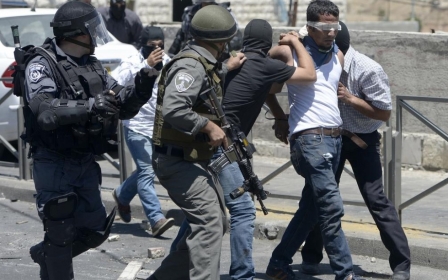Gaza toll tops 1,000 as bodies recovered during truce

The toll in Gaza rose above 1,000 dead on Saturday as more than 100 bodies were pulled from the rubble of homes throughout the coastal enclave during a truce, medics said.
The grim milestone came on the 19th day of a conflict between Israel and the Palestinian Hamas movement, during a 12-hour truce that allowed Gaza residents to pick through the ruins of their homes.
The bodies of 85 of Palestinians were recovered from rubble across Gaza on Saturday, raising to over 1,000 the overall death toll of Israel's onslaught on the territory since July 8, medics said.
An Israeli air strike in southern Gaza hours before a humanitarian truce was declared killed 20 people, including 11 children, most of them from a single family, medics said.
The strike in southern Khan Yunis hit the home of the Najjar family, killing at least 14 members of the clan, Emergency services spokesman Ashraf al-Qudra said.
Another two members of the Abu Shahla family were killed, along with four other people, two of whom have yet to be identified.
The dead included 11 children, among them a one-year-old girl and a three-year-old boy, Qudra said.
Humanitarian truce
A 12-hour humanitarian truce between Israel and the Palestinian Hamas group entered into effect on Saturday, as top diplomats pressed efforts to secure a longer-term ceasefire.
The fragile ceasefire came into force at 8:00 am (0500 GMT) after Hamas and the Israeli military announced their consent in the early hours of Saturday morning.
Hamas said it and other groups in Gaza had reached "national consensus on a humanitarian truce", and Israel later confirmed it would observe what it called "a humanitarian window in the Gaza Strip".
The Hamas-run interior ministry in Gaza advised people not to approach bombed-out buildings and militant bases for fear of "explosive objects".
The Israeli military warned Gaza residents who had been told to evacuate their homes not to return and said "activities to locate and neutralise tunnels in the Gaza Strip will continue".
The appeals came after US Secretary of State John Kerry, speaking in Cairo on Friday, said efforts to broker a longer halt to the fighting had yet to bear fruit.
On Saturday Kerry flew to Paris where French Foreign Minister Laurent Fabius was to host him and their counterparts from Britain, Germany, Italy, Qatar, Turkey and the European Union.
Kerry said at a news conference in Cairo with UN chief Ban Ki-moon that both Israel and Hamas "still have some terminology" to agree to on a ceasefire, but added they had "fundamental framework" on a truce.
It came after Israel's security cabinet "unanimously rejected" a proposal by Kerry for a ceasefire lasting up to a week, during which negotiations on a longer-term deal would have taken place, Israel's Channel 1 TV reported.
Palestinians return to streets
As the 12-hour truce went into effect on Saturday, Palestinians cautiously took to the streets in Gaza, with some returning to areas that had been too dangerous to enter for days.
In northern Beit Hanun there were scenes of total destruction, with buildings flattened and even the hospital badly damaged by shell fire.
AFP correspondents came across the charred body of a paramedic and trails of blood crossed by Israeli tank tracks, as well as holes in the ground where it appeared the army had been searching for Hamas tunnels.
On Friday, Ban urged a truce be agreed that would last through the Muslim holiday of Eid al-Fitr, marking the end of the fasting month of Ramadan, and expected to fall around Monday.
Hamas has insisted that any truce must include a guaranteed end to Israel's eight-year blockade of Gaza.
Stay informed with MEE's newsletters
Sign up to get the latest alerts, insights and analysis, starting with Turkey Unpacked
Middle East Eye delivers independent and unrivalled coverage and analysis of the Middle East, North Africa and beyond. To learn more about republishing this content and the associated fees, please fill out this form. More about MEE can be found here.




